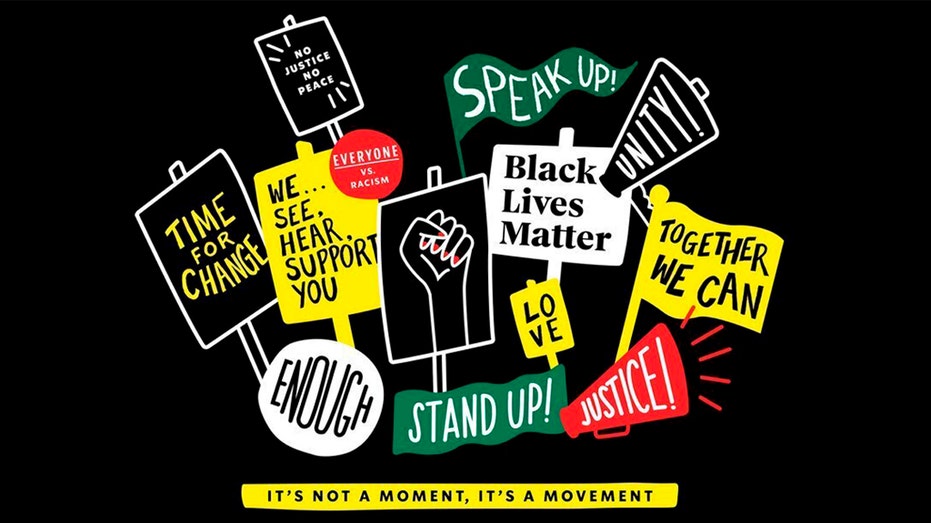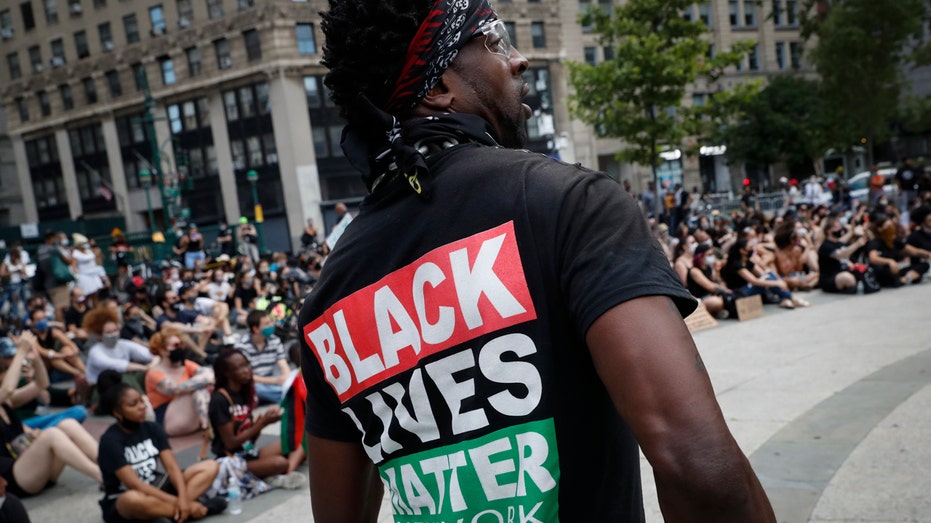What workers need to know about protests — on and off the job
Could taking time off of work to protest get you in trouble?
Could a Black Lives Matter logo at work could get you in trouble? What about taking time off to protest? Experts say now is the time for workers and their employers to brush up on company rules governing conduct on and off the job.
VARNEY: TRUMP STANDING FOR LAW AND ORDER AMID VIOLENT PROTESTS
Protests against racism and police brutality have spread around the world, ignited by the May 25 killing of George Floyd while in Minneapolis police custody and sustained by outrage over the deaths of other black citizens, including Breonna Taylor, Ahmaud Arbery and Elijah McClain.
In the days after Mr. Floyd’s killing many companies rushed to condemn racial injustice and express support for the protests.
“I can’t recall another time that this many major companies and brands have been willing to take a stand,” said Aaron Holt, a Houston labor attorney at the international law firm Cozen O’Connor.
Now, as some workers join the protesters, employers need to review their company practices to make sure policies on conduct are neutrally and consistently applied, Mr. Holt said. Companies generally wouldn’t have explicit rules on protesting, but an employee participating in activism could run afoul of policies on attendance, attire or off-duty conduct.
“You can’t pick and choose when you want to enforce a policy,” Mr. Holt said. “If you allow employees to wear masks that have logos on them like their favorite sports team but you don’t allow Black Lives Matter masks, then you’re not consistently applying the policy. Or you can say no logos.”
COUNTRY MUSIC RECKONS WITH RACIAL STEREOTYPES AND ITS FUTURE
The same applies for schedule flexibility and requests for personal time off, he added.
Now that more companies, large and small, are voicing support for the Black Lives Matter movement, employers also have to make sure their words are consistent with their employee policies, said Stacy Hawkins, a professor at Rutgers Law School.
Starbucks Corp. said earlier this month that it would give out 250,000 T-shirts bearing social-justice slogans including “Black Lives Matter” to its employees, reversing its earlier decision to bar them from displaying support for the movement while at work. The coffee giant has planned other initiatives, including a $1 million commitment from the Starbucks Foundation in neighborhood grants to promote racial equity.

In this undated image provided by Starbucks via Twitter is a graphic with Black Lives Matter signs for the company's new t-shirts. (Starbucks via AP)
“It’s very possible that a manager would tell one employee that they can’t go to a Black Lives Matter protest and several months before allowed another employee to attend the Women’s March, and not realize that they are treating these people very differently,” said Prof. Hawkins, who added the disparity may require bosses to confront their unconscious biases.
JIMMY KIMMEL TO TAKE SUMMER BREAK FROM ‘JIMMY KIMMEL LIVE!’
Safiya Bansfield, a 22-year-old administrative assistant in Seattle, has attended a couple of Black Lives Matter demonstrations, but she has avoided talking about her activism at work. As the only black person in her predominantly white office, Ms. Bansfield said she worried about offending a co-worker or jeopardizing her professional goals.
“I’m still learning the dynamics of the office,” she said.
Workers may run some employment risk if they participate in protests or other forms of activism. Most U.S. workers are at-will employees, meaning they can be fired without notice and for any reason. There are exceptions, such as those provided under the National Labor Relations Act, which protects employees who are protesting working conditions. Some states also have laws that prevent employers from firing someone for taking part in lawful off-duty activities.
Perhaps most misunderstood is what the First Amendment does and doesn’t provide, said Prof. Hawkins. While the First Amendment protects a person’s rights to free speech and assembly without government interference, it doesn’t prevent a private employer from firing or disciplining a worker for actions such as engaging in political speech at work.
“The idea that we lose those rights in any context is shocking to most people,” she said.

Juneteenth protesters gather at Foley Square after marching over the Brooklyn Bridge, Friday, June 19, 2020, in New York. (AP Photo/John Minchillo)
While peaceful protesting during one’s personal time should be a nonissue for most employers, Mr. Holt said a worker’s off-duty conduct could threaten their job if they break the law or engage in behavior that goes against their organization’s values, such as using defamatory or discriminatory language.
Amy Cooper, a white woman in New York City, lost her job as an investment manager after a viral video showed that she called 911 to report that a black man was threatening her life; in reality, the man, a bird-watcher, had asked her to leash her dog.
CHICK-FIL-A CEO DAN CATHY ON RACISM IN AMERICA: "WE'RE SHAMEFUL"
Thousands of people have been arrested during the current wave of protests across the U.S., according to an Associated Press tally. Many employers conduct periodic background checks on workers, but in most cases employers wouldn’t take actions against an employee based on an arrest alone, said Amber Clayton, director of the Society for Human Resource Management HR Knowledge Center.
The rise of cellphone video has made it easier for an employee to prove compliance with the police, according to Mr. Holt, the attorney in Houston. “That’s something that someone can show an employer and say, ‘This is what I was doing, take my word for it,’ ” he said.
TINA FEY ASKS NBC TO PULL '30 ROCK' BLACKFACE EPISODES
Some employers, such as school districts, may require employees to disclose arrests, but Prof. Hawkins said workers shouldn’t voluntarily divulge that information if they don’t have to.
If an employee is arrested and may miss work because he or she can’t afford bail, the best practice is to communicate with the boss, Ms. Clayton said, adding “try to reach them, so you’re not considered a no-call, no-show.”
Employees can also protect their jobs by making sure to follow their company’s policies around attendance and dress, such as not wearing company-branded apparel during demonstrations or not calling in sick to attend a protest but rather taking personal or vacation time to do so.
In early June, Diamond Armstrong was worried she wouldn’t get the chance to protest because of her work schedule. She is a shift supervisor at &pizza, a restaurant chain based in Washington, D.C. By the time her shift ended, citywide curfews were taking effect. “As a black woman, I deal with these issues,” she said. “I needed to be a part of this.”
GET FOX BUSINESS ON THE GO BY CLICKING HERE
Ms. Armstrong, 29, planned to ask for a day off, but before she could make the request, her boss approached her and offered her time off to protest. The next day, the pizza chain announced a new policy allowing all of its workers to take three days of additional paid time off to participate in protests and other forms of activism.
For employers, trying to prevent employees from any kind of participation on- or off-duty may not be the best approach. “There is a middle ground,” Mr. Holt said. “You can have a professional and effective workplace and allow employees to make their voices heard.”




















